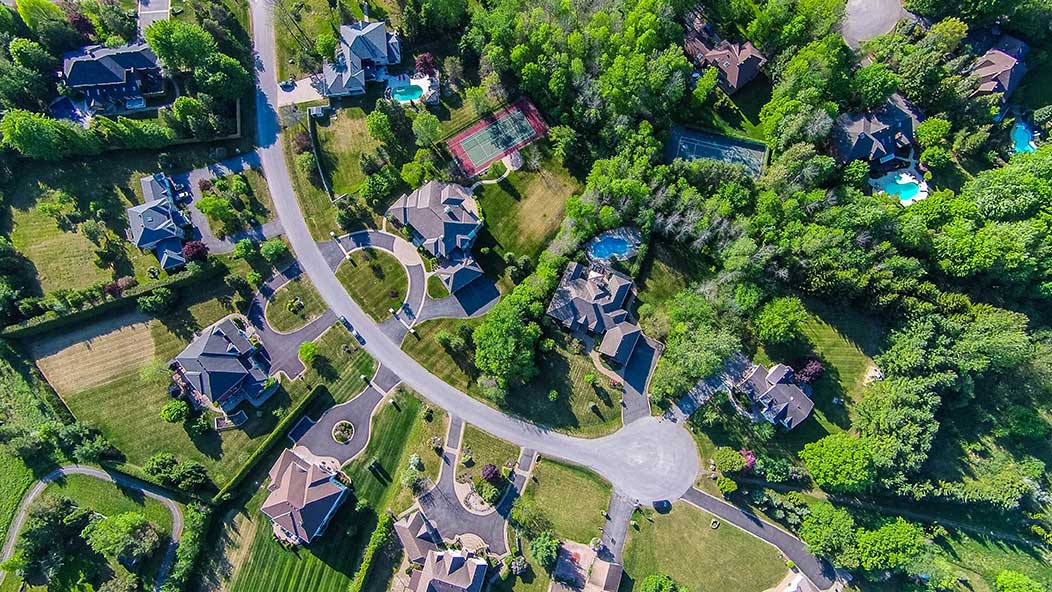A homeowners’ association is one of many factors to consider before you purchase a home or more commonly condominiums here in Connecticut.
An HOA is an organization that provides a neighborhood with maintenance services and amenities while enforcing rules and guidelines. They’re common in planned communities, condominiums, and mobile home parks. Homeowners in HOA communities must pay monthly fees in exchange for the services the association provides. The more services the HOA covers the more expensive the monthly fee will be. High Rise buildings tend to have the highest fees since it is more expensive to maintain.
The presence of an HOA may make or break your decision to move to a particular complex or neighborhood. While some people love the services an HOA provides, others prefer the independence of an HOA-free community. To decide whether or not you should move to an area with an HOA, it’s important to consider both the pros and the cons.

Pros of an HOA
Maintenance
The main purpose of HOA fees is to take care of maintenance costs around the neighborhood or in the condo complex. This includes services like snow removal, trash pickup, pest control, and road repairs. Some associations will even take care of landscaping so that you don’t have to worry about lawn care. Different HOAs will offer different services, but you’ll definitely have fewer maintenance tasks to worry about if you live in a neighborhood with an association.
Amenities
Most associations offer community amenities like a park, pool, or fitness center. Some even build golf courses for the community. You can enjoy all of these features without worrying about cleaning or maintaining them. Walking down the block to the HOA-maintained swimming pool is much easier than taking care of your own.
Conflict Resolution
An inconsiderate neighbor can cause serious problems. If your neighbor throws loud parties or leaves the trash out, you may feel awkward confronting them on your own. Tension between you and your neighbor can make you feel uncomfortable in your own community, so you may hesitate to bring up the issue.
The HOA is there to help. One of their main jobs is to resolve disputes, and if your neighbor is acting inconsiderately, the HOA will be on your side. Your neighbor will probably never even know that you were the one to file a complaint.
Neat Neighborhood
HOAs put rules in place to keep the neighborhood looking good. Most of these guidelines focus on lawn care, but your HOA may also have rules about street parking, paint, or other matters. You can be confident that your neighborhood will look neat and tidy, which can increase the value of your home.
Utilities
Some associations include certain utilities in the monthly fee. Your HOA may handle sewer, water, trash, or gas for the neighborhood so that you don’t have to deal with so many different utility bills every month. This keeps your monthly expenses more consistent, which can relieve stress. Instead of seeing fluctuating utility bills, you can pay the same amount every month to the HOA.
Social Events
Some HOAs host community pool parties, yard sales, and potlucks, which are great opportunities to get to know your neighbors. If your community has shared amenities, you can also meet your neighbors when you cross paths. People tend to feel closer to each other when they all pay the same HOA fees.
If you’re interested in leadership, you could even run for a position on your HOA board. Being active with your HOA is an excellent way to get closer to your community.
Cons of an HOA
Fees
All of the benefits of an HOA come at a steep cost. Association fees vary, but most range between $200 and $400 per month. To decide whether or not the fees are worth it, you should consider how much you utilize the HOA’s services. If you never use the pool and don’t mind doing yard work yourself, you may find that the monthly cost is mostly a waste.
Rules and Restrictions
To keep the neighborhood neat and tidy, HOAs have detailed guidelines about what is and isn’t allowed. Your HOA may tell you how many pets you can own, how tall your grass should be, and even what kind of blinds you should put in your windows. Some people don’t mind following these types of rules, but others feel uncomfortable being told what to do with their property.
Renovation Problems
HOAs have strict rules about home renovations that affect the exterior of the house. If you want to build a patio or paint your home, you’ll have to get the project approved. Your chance of approval depends on the scope of the renovation and your HOA’s leniency. It can be incredibly frustrating to be forbidden to do work on your own home.
Poor Management
Some associations are professional, efficient, and easy to work with, and others are completely mismanaged. Your HOA may not follow through with the repairs they promised, or they may not maintain the community amenities. Before you move into a neighborhood with an HOA, you should speak to others in the community about their thoughts on the HOA’s management. We have seen HOA’s get taken over by a set of owner’s with their own agenda and that lacked real experience on how to manage the HOA and left it defunct.
Privacy
Your HOA watches closely to make sure you and your neighbors are following the rules. Some associations are more watchful than others, but no one likes to feel like they’re being scrutinized. Many people find that the lack of privacy and autonomy are a big drawback of HOAs.

Is an HOA Worth It?
There are plenty of benefits and drawbacks to living in a neighborhood with an HOA. Ultimately, the decision to move to an HOA community is up to you. Everyone has different preferences and priorities, so you have to consider your own needs and wants for your neighborhood. When you’re interested in a home, carefully look through the rules, fees, and services managed by the HOA to determine whether the neighborhood will be a good fit for you.


